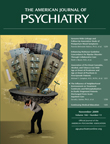Randomized, Double-Blind, Placebo-Controlled Trial of Vigabatrin for the Treatment of Cocaine Dependence in Mexican Parolees
Abstract
Objective: Cocaine dependence is associated with severe medical, psychiatric, and social morbidity, but no pharmacotherapy is approved for its treatment in the United States. The atypical antiepileptic vigabatrin (γ-vinyl gamma-aminobutyric acid [GABA]) has shown promise in animal studies and open-label trials. The purpose of the present study was to assess the efficacy of vigabatrin for short-term cocaine abstinence in cocaine-dependent individuals. Method: Participants were treatment seeking parolees who were actively using cocaine and had a history of cocaine dependence. Subjects were randomly assigned to a fixed titration of vigabatrin (N=50) or placebo (N=53) in a 9-week double-blind trial and 4-week follow-up assessment. Cocaine use was determined by directly observed urine toxicology testing twice weekly. The primary endpoint was full abstinence for the last 3 weeks of the trial. Results: Full end-of-trial abstinence was achieved in 14 vigabatrin-treated subjects (28.0%) versus four subjects in the placebo arm (7.5%). Twelve subjects in the vigabatrin group and two subjects in the placebo group maintained abstinence through the follow-up period. The retention rate was 62.0% in the vigabatrin arm versus 41.5% in the placebo arm. Among subjects who reported prestudy alcohol use, vigabatrin, relative to placebo, was associated with superior self-reported full end-of-trial abstinence from alcohol (43.5% versus 6.3%). There were no differences between the two groups in drug craving, depressed mood, anxiety, or Clinical Global Impression scores, and no group differences in adverse effects emerged. Conclusions: This first randomized, double-blind, placebo-controlled trial supports the safety and efficacy of short-term vigabatrin treatment of cocaine dependence.



